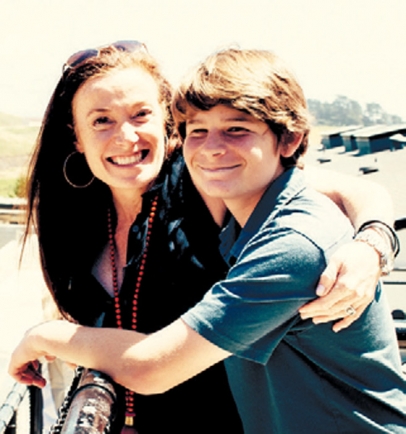Grist for the Mill Fall 2017
“I realized my food always had been telling who I was, when and where: how I felt about my family, and how I related to nature. I saw it first in the lives of people whose language, customs and culture were foreign…”
—The late North Carolina–based chef and cookbook author Bill Neal, as quoted in The Potlikker Papers: A Food History of the Modern South, by John T. Edge (Penguin Press, 2017)
I am an immigrant to the State of California. I moved here from the American South in 1998. Gratefully, I was not escaping oppression or poverty. I wasn’t really escaping anything. I just had a deep sense that something bigger, greater, was in store for me, and that California was the land of opportunity where I could make that happen. I told myself that if I didn’t like it, I could always go home. That was 19 years ago and I have never looked back.
Other than Native Americans who were here before any of us and enslaved Africans who were brought to this country against their will, we are all immigrants, or descendants of immigrants, to this country.
California was once heralded as the land of the plenty, beckoning U.S. residents of other states in large numbers. In 1960, half of California residents were born in another U.S. state. By 2012, that number was down to 18%. The lure of the Golden State is still a draw for immigrants from other countries, most significantly from our closest neighbor to the south, Mexico, but the number of Mexican citizens willing to cross the border to toil in jobs many U.S. citizens simply refuse to do is sharply down. And this, as you will read in Sarah Henry’s fi ne article in this issue, is greatly to our peril.
I believe I can safely posit that people who emigrate from their native land (or town or city or state) do so in hopes that—by leaving all that they know and the people they love, and who love them—they will make a better life for themselves, and for their loved ones. Such a leaving is not for the fainthearted, or the lazy, or the pessimistic. The very founding families of the United States came here because they were not content to live under the status quo of a monarchial system designed to keep people “in their place.”
Those of us fortunate enough to have been born in this country start with a huge “leg up,” just by virtue of the luck of our birthplace. We would do well to never forget this serendipity, not earned through any personal eff ort, and to never look down upon another simply because they did not win the “birthplace lottery.”
Immigrants who come to this country to fulfill their dreams and who bust their tails to turn those dreams into reality are essential drivers in our economy. They also contribute greatly to the vibrancy of our culture. The sharing of native cuisines is often a bridge for cross-cultural understanding and acceptance. Preparing and savoring foods from our homelands connects us to those we left behind, and lets new neighbors know better who we are and from where we came. I am a member of a Southern supper club made up of expat Southerners who get together to share a meal once a month. You will read in these pages a story about a dinner club started by first-and second-generation Japanese American women after they were released from World War II internment camps. The daughter of one has generously shared her ramen recipes in this issue. Sayōnara, 100% American and oh-so-bland Campbell’s chicken noodle soup!
From Alabama, from Australia, from France, from Japan, from Malaysia, from Mexico, from Nepal, we have all come to California, joining the lucky handful who were actually born here, like sixth-generation farmer and winemaker Haley Wight, whose family’s story is also told in this issue. Thankfully, Californians have a long history of welcoming immigrants. If those who came before had staked their claim and built a wall against the rest of us, I, too, would be one of those standing on the outside looking in.





